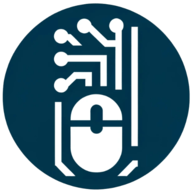Welcome to a comprehensive guide on mastering techniques in software project management. This blog post will delve into the world of software project management, exploring various techniques that can enhance the success of your projects. We will discuss the importance of these techniques and how they can be applied to your projects. Whether you're a seasoned project manager or just starting out, this guide will provide you with valuable insights and practical tips.
Understanding Software Project Management
Software project management is a critical aspect of any software development process. It involves planning, organizing, and managing resources to achieve specific goals and objectives. The success of a software project largely depends on how well these tasks are executed.
Software project management techniques are tools that help project managers effectively manage their projects. They provide a structured approach to project management, ensuring that all aspects of the project are handled efficiently. These techniques can be broadly classified into traditional and agile techniques.
Traditional techniques are often used in projects with well-defined requirements and a fixed scope. They involve a sequential approach where each phase of the project is completed before the next one begins. Examples of traditional techniques include Waterfall and Critical Path Method (CPM).
On the other hand, agile techniques are more flexible and adapt to changes more easily. They involve an iterative approach where the project is divided into small increments or "sprints". Each sprint is a mini-project in itself and includes all the phases of a project. Examples of agile techniques include Scrum and Kanban.
Exploring Traditional Techniques
Traditional software project management techniques have been around for a long time and have proven to be effective in managing projects with a fixed scope and well-defined requirements. Let's take a closer look at two of the most popular traditional techniques: Waterfall and Critical Path Method (CPM).
The Waterfall model is a sequential design process, often used in software development processes, where progress is seen as flowing steadily downwards (like a waterfall) through the phases of conception, initiation, analysis, design, construction, testing, production/implementation, and maintenance.
The Critical Path Method (CPM) is a step-by-step project management technique for process planning that defines critical and non-critical tasks with the goal of preventing time-frame problems and process bottlenecks. The CPM is ideally suited to projects consisting of numerous activities that interact in a complex manner.
Delving into Agile Techniques
Agile techniques have gained popularity in recent years due to their flexibility and adaptability. They are particularly effective in projects where the requirements are not clearly defined or are likely to change. Two of the most popular agile techniques are Scrum and Kanban.
Scrum is an iterative and incremental agile software development framework for managing product development. It defines "a flexible, holistic product development strategy where a development team works as a unit to reach a common goal", challenges assumptions of the "traditional, sequential approach" to product development, and enables teams to self-organize by encouraging physical co-location or close online collaboration of all team members, as well as daily face-to-face communication among all team members and disciplines in the project.
Kanban is a lean method to manage and improve work across human systems. This approach aims to manage work by balancing demands with available capacity, and by improving the handling of system-level bottlenecks.
Choosing the Right Technique
Choosing the right software project management technique depends on the nature of the project, the team's expertise, and the project's requirements. For projects with well-defined requirements and a fixed scope, traditional techniques like Waterfall and CPM can be effective. They provide a structured approach and ensure that each phase of the project is completed before the next one begins.
For projects where the requirements are not clearly defined or are likely to change, agile techniques like Scrum and Kanban can be more effective. They provide flexibility and adaptability, allowing the project to evolve as the requirements change.
It's also possible to use a hybrid approach, combining elements of both traditional and agile techniques. This can provide the structure of traditional techniques with the flexibility of agile techniques.
The Role of a Software Project Manager
The role of a software project manager is crucial in the successful implementation of these techniques. They are responsible for planning, organizing, and managing resources to achieve the project's goals and objectives.
A good software project manager needs to have a deep understanding of the project's requirements and the ability to communicate effectively with the team. They also need to be able to adapt to changes and make decisions quickly.
In addition to these skills, a software project manager needs to be familiar with the various software project management techniques and know when to use them. They need to be able to choose the right technique for the project and implement it effectively.
The Impact of Effective Software Project Management
Effective software project management can have a significant impact on the success of a project. It can ensure that the project is completed on time, within budget, and to the required quality standards.
By using the right software project management techniques, a project manager can ensure that all aspects of the project are handled efficiently. This can reduce the risk of project failure and increase the chances of project success.
Furthermore, effective software project management can improve communication within the team and with stakeholders. This can lead to better decision-making and improved project outcomes.
Wrapping Up: Mastering Software Project Management Techniques
In conclusion, mastering software project management techniques is crucial for any project manager. Whether you prefer traditional techniques like Waterfall and CPM, or agile techniques like Scrum and Kanban, understanding and implementing these techniques effectively can greatly enhance the success of your projects. Remember, the key is to choose the right technique for the project and implement it effectively. With the right approach, you can ensure that your projects are completed on time, within budget, and to the required quality standards.

